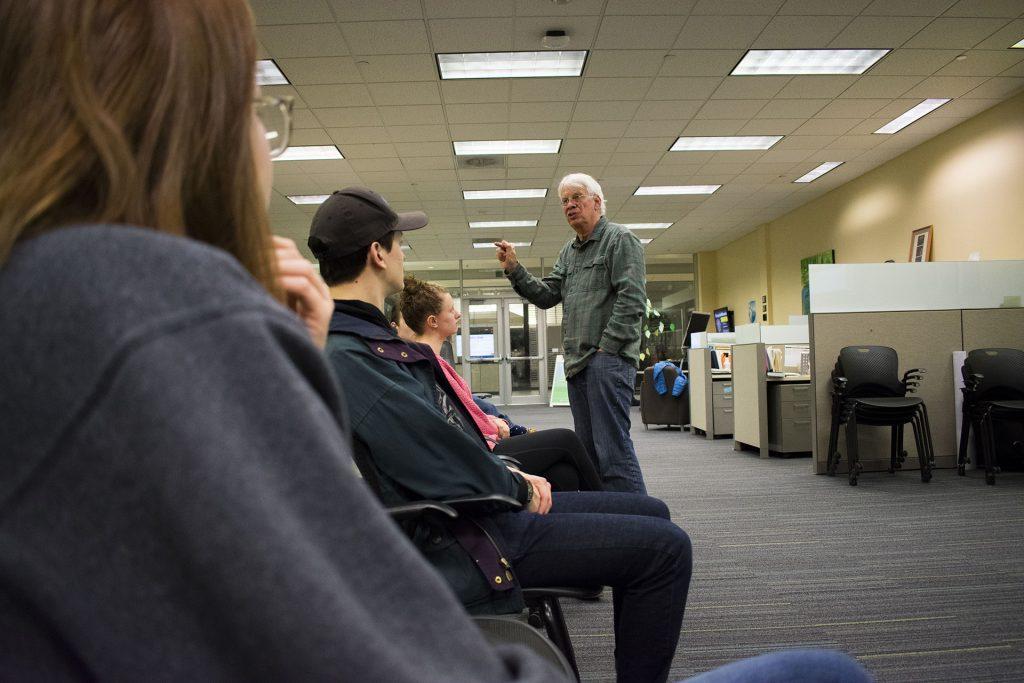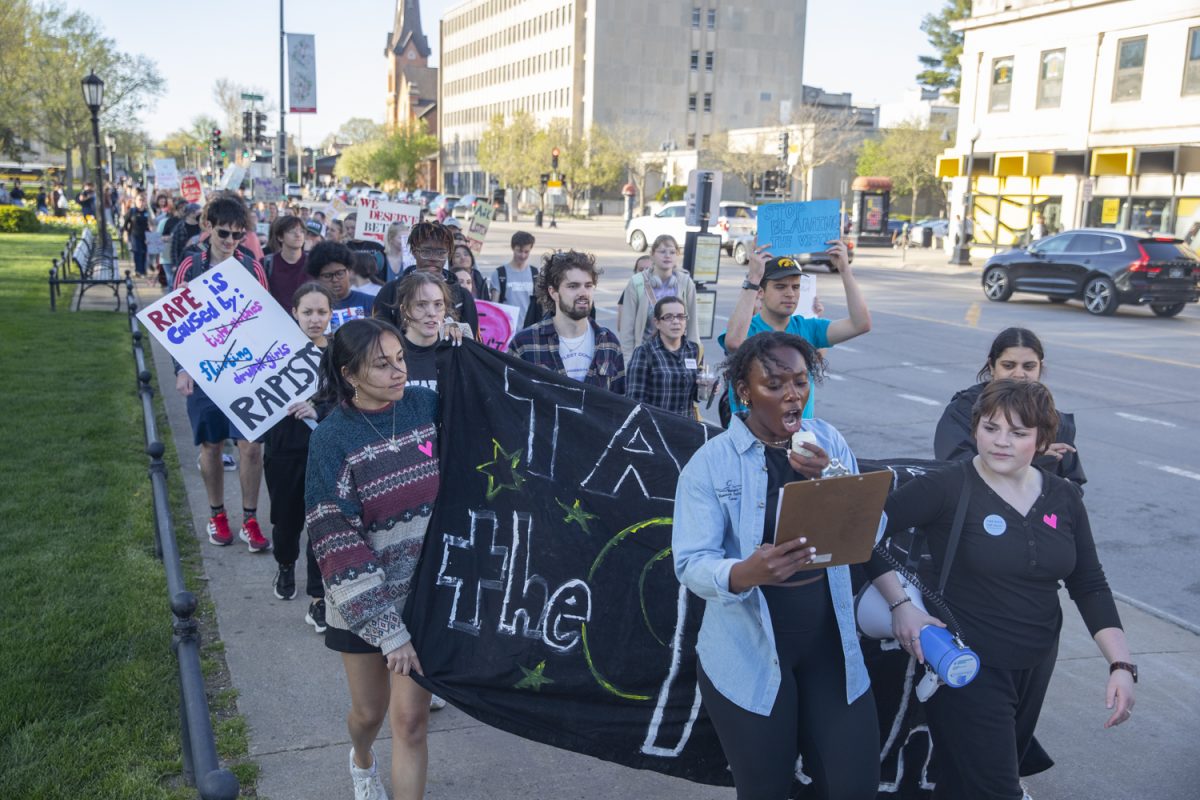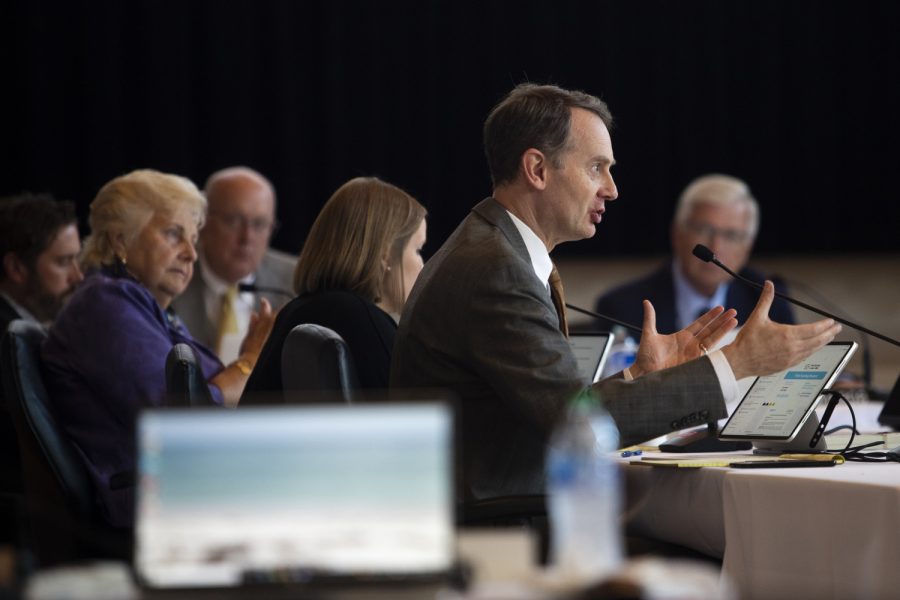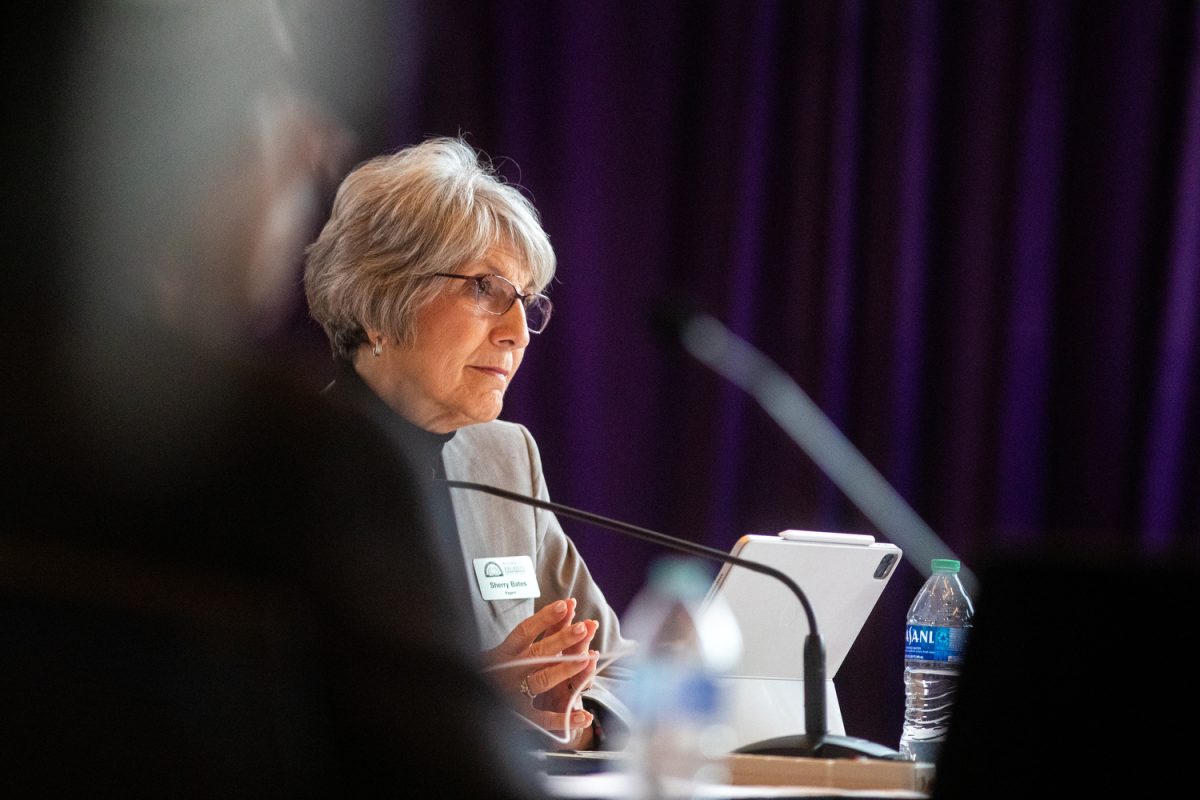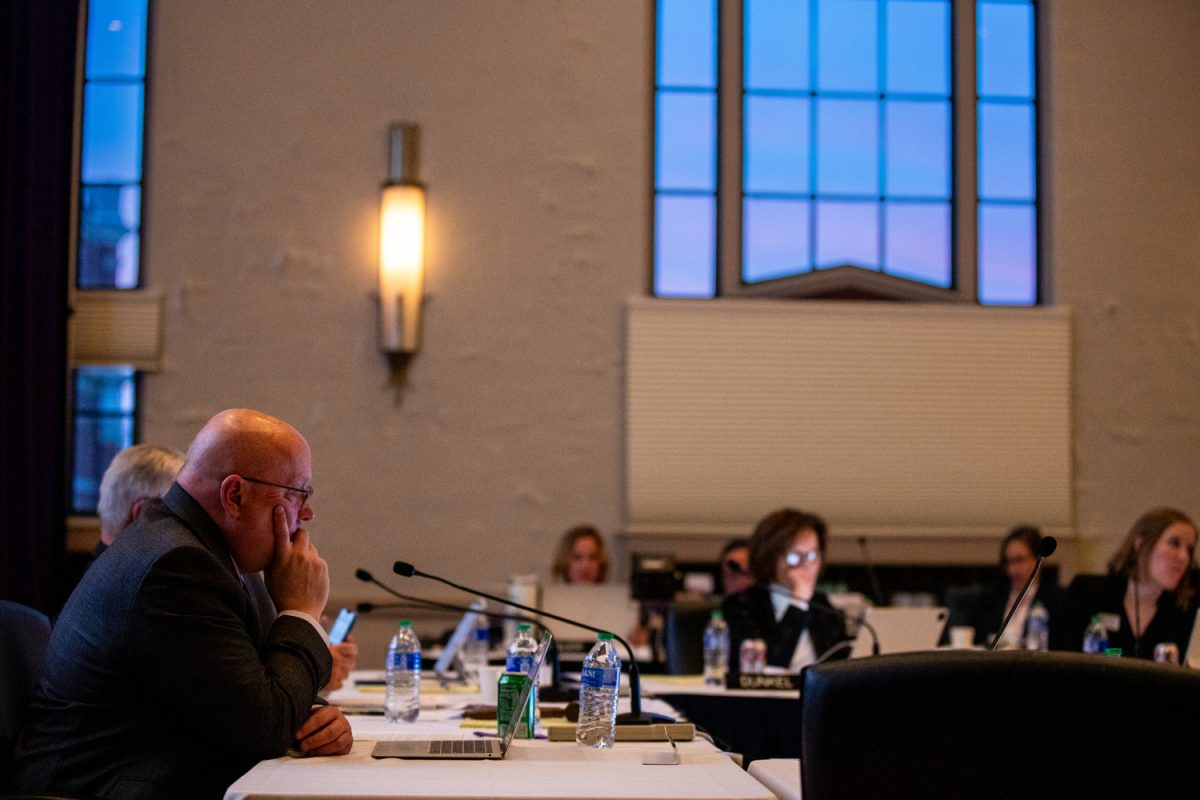Dave Collins stood in front of University of Iowa students not as a lecturer but as an investor in our environment’s future.
Collins, who has been a UI business lecturer for 20 years, teaches courses in the Tippie College of Business in marketing and sustainability.
During his time at the university, Collins has seen the environmental movement shift from consumers to big business.
The lecture focused on how modern environmental movements need to change, and the green movements that began during Richard Nixon’s presidency haven’t resulted in the change that needs to happen.
“We’re looking for progress not perfection,” Collins said about the roles businesses take on when embodying environmentally ethical practices.
In a video, Collins showed during the lecture, he visualized that 90 percent of water use is in agriculture and industry. That leaves the last 10 percent to municipality and personal use.
“Why should we have to take shorter showers?” Collins asked the audience, referring to California’s drought, which led to massive fires and mudslides in the last year.
This also led to a continuing frustration Collins has with recycling on campus and in our country.
“Water bottles don’t get recycled,” Collins said. “Why would we even sell water bottles in the first place?”
Consumption is something that Collins referred to as he stressed the idea that the United States doesn’t have a recycling problem, rather, a consumption problem.
Collins went on to relate the environmental movements to other social movements in the countries past.
“I grew up in an integrated school,” Collins said. “Sarah had red hair, Billy had green eyes, and Joey Jackson had black skin.”
In an interview with Collins, he went on to state how he saw the Civil Rights Movement unfold.
“My grandparents then moved to Little Rock, Arkansas, and I saw what segregation looked like in the 1950s,” Collins said.
He then went on to describe how Rosa Parks led a social movement that resulted in the Civil Rights Act of 1964.
Collins also witnessed the Vietnam War protests that filled the Pentacrest and downtown Iowa City; he later attributed the ceasefire that ended the war to student protests.
Last, the Clean Air and Water act signed by President Nixon was instigated by Rachel Carson’s book Silent Spring.
“You as students have the power to stand up against these issues,” Collins said. “Get involved, use your ability as citizens to push for these changes.”
Collins has distributed this message to his students during his time at the UI.
“What we talked about is relevant to every citizen,” said Amber Leisinger, one of Collins’ students.
“This changes the way we [as students and future professionals] view success,” Leisinger said about how she views her professional career after the UI.
In Collins’ classes at the university, he focuses on marketing as a business model.




